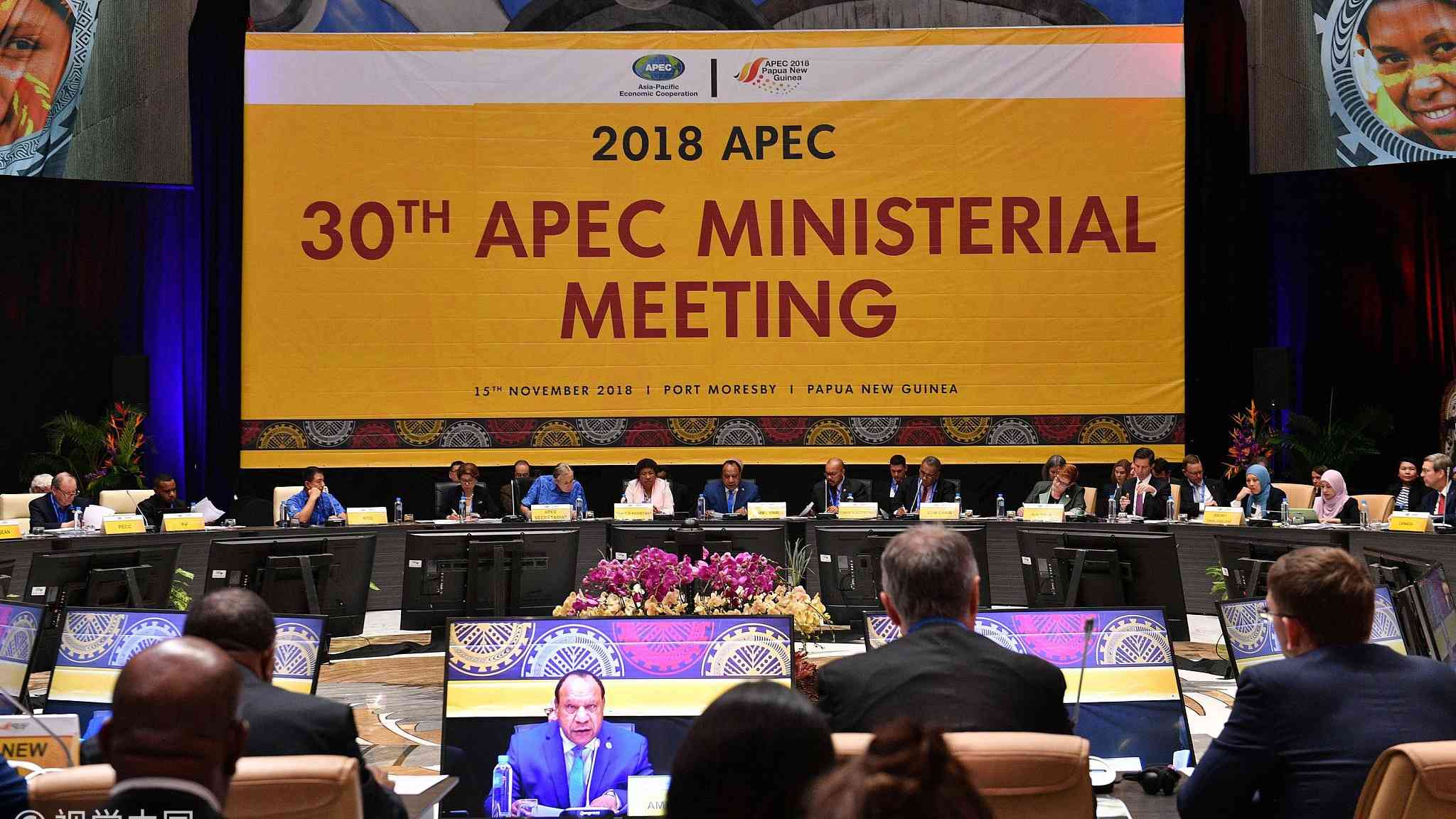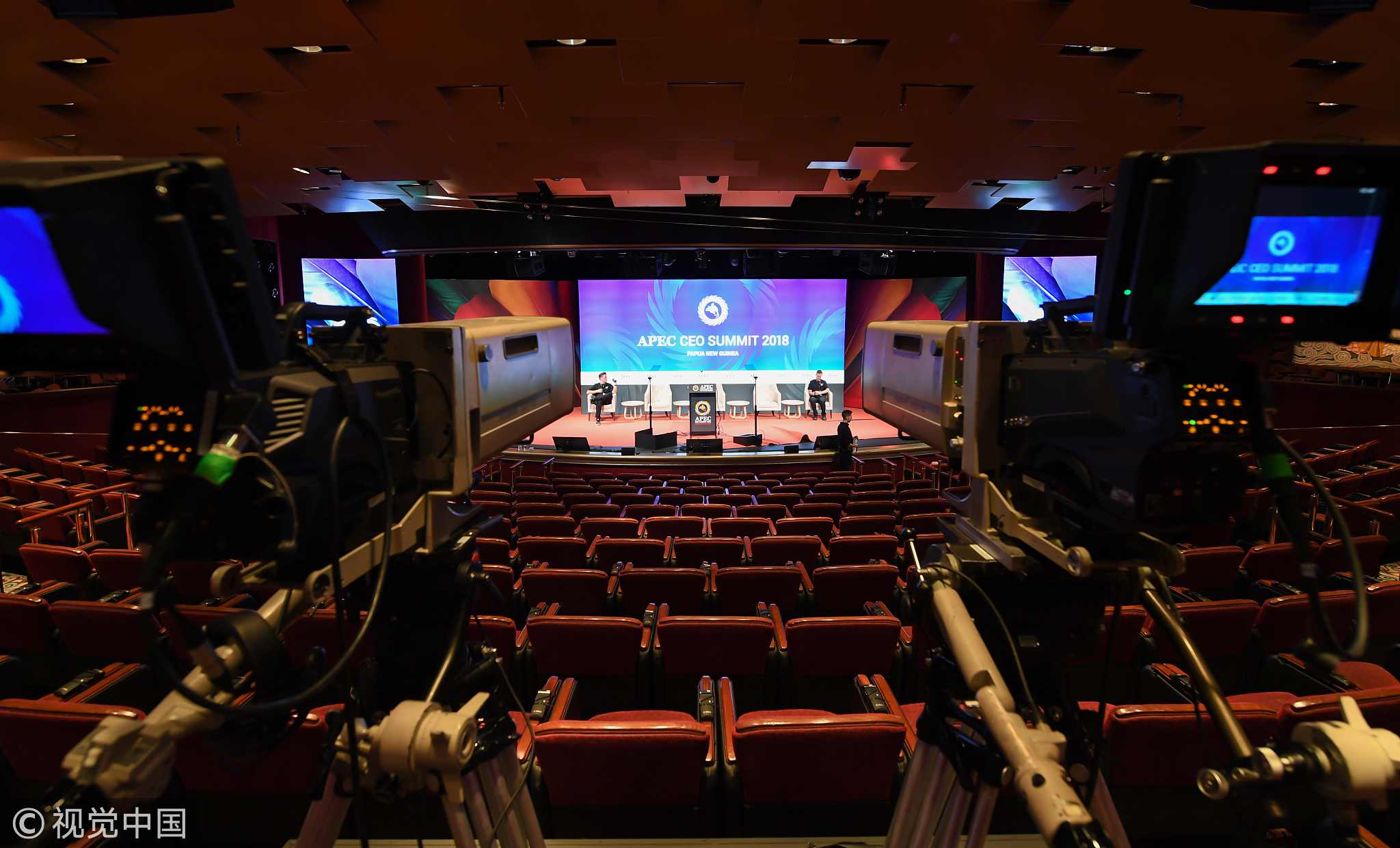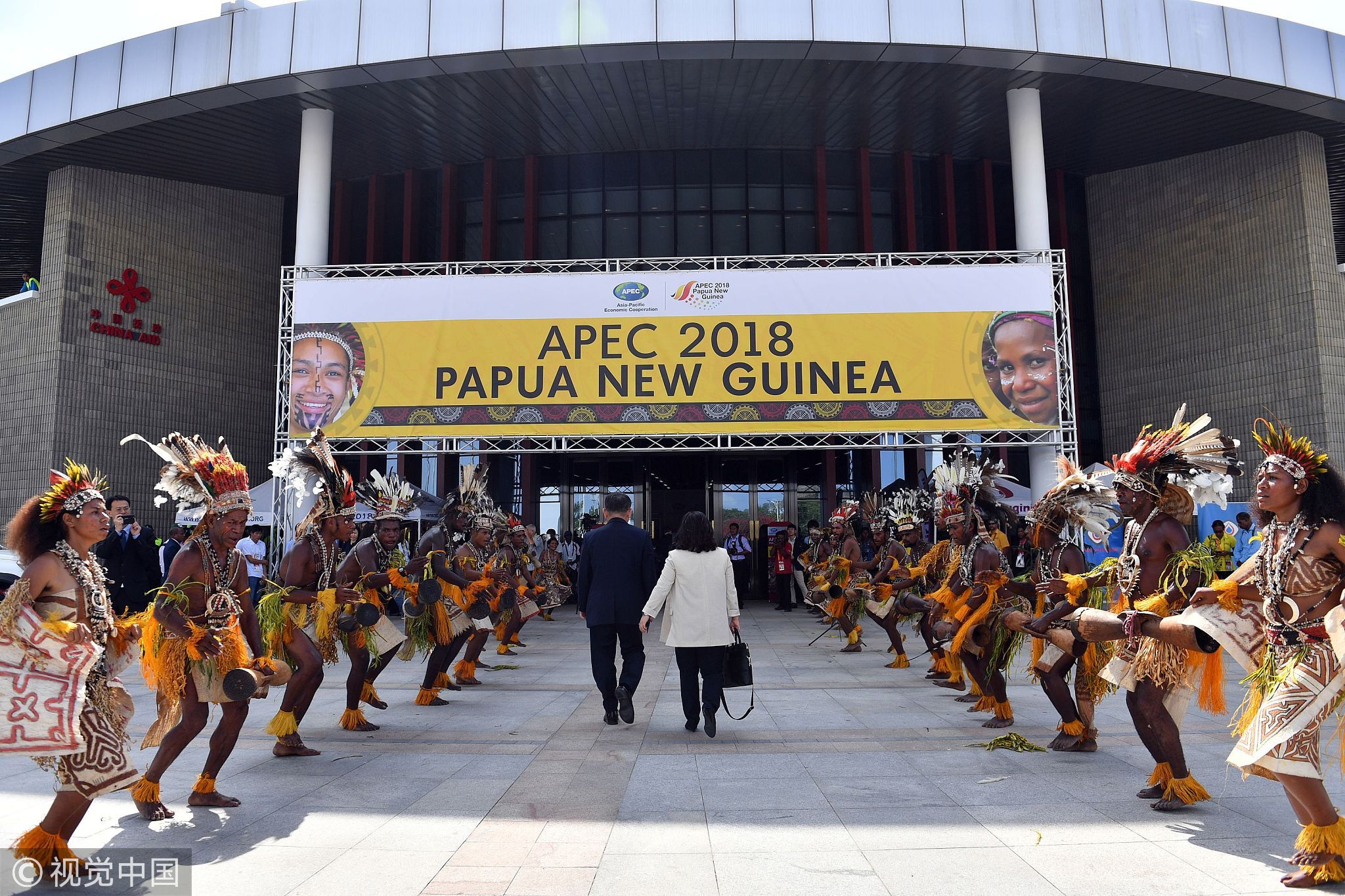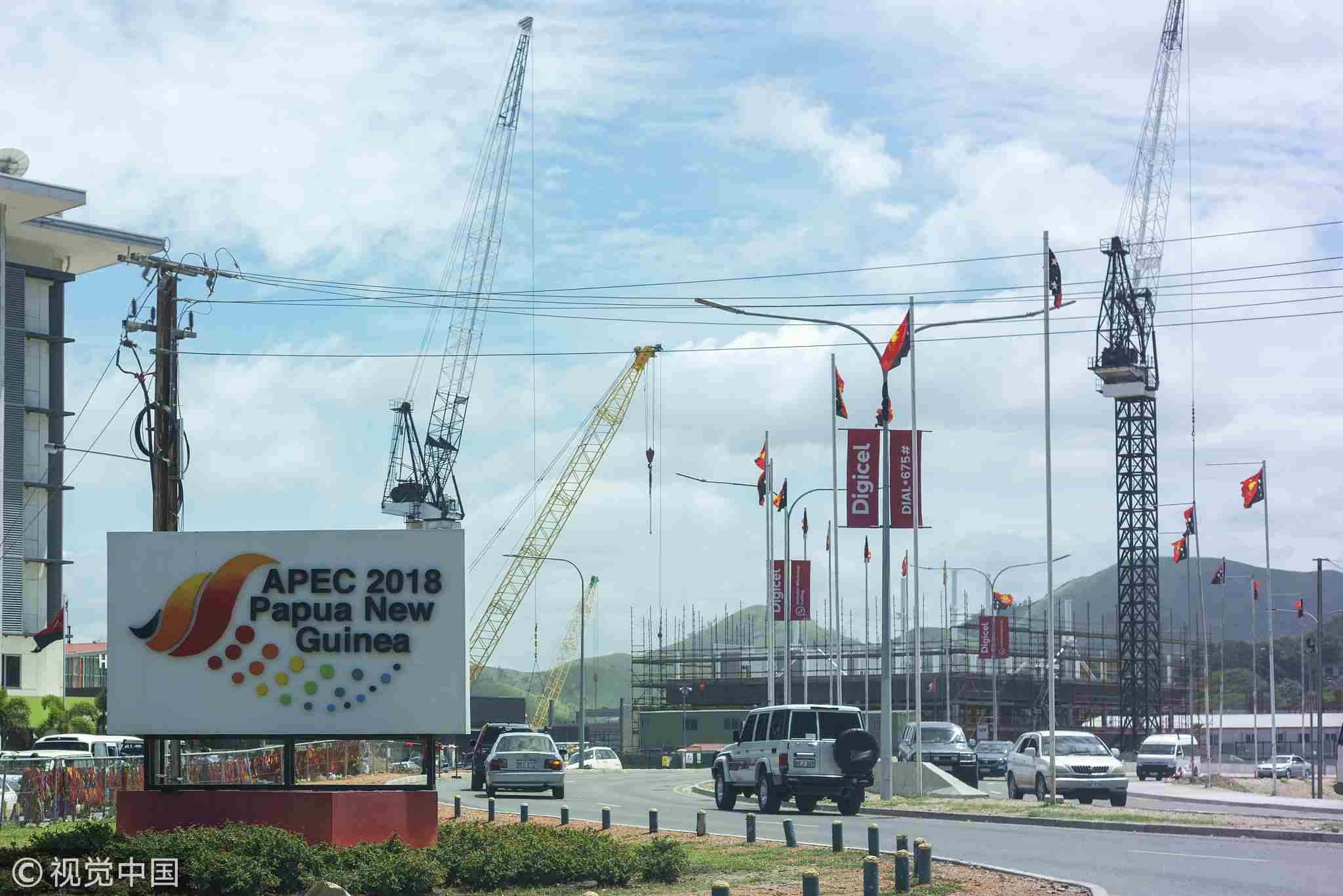
Opinions
11:41, 15-Nov-2018
Opinion: China-PNG cooperation facing a new era
Updated
10:57, 18-Nov-2018
He Rui

Editor's note: He Rui is an assistant research fellow at the Department of Developing Countries Studies under the China Institute of International Studies (CIIS). The article reflects the author's opinion, and not necessarily the views of CGTN.
The 2018 Asia-Pacific Economic Cooperation (APEC) Economic Leaders' Week is taking place from November 12 to18 in Port Moresby, Papua New Guinea (PNG). At the invitation of the Governor of PNG Bob Dadae and Prime Minister Peter O'Neill, Chinese President Xi Jinping will pay a state visit to PNG. This is the first visit of a Chinese head of state to PNG since the establishment of diplomatic relations between the two countries.
O'Neill warmly welcomes Chinese President Xi Jinping and expects to make great efforts with China to explore new areas of cooperation and promote China-PNG ties.

Papua New Guinea's Foreign Affairs and Trade Minister Rimbink Pato (back C) addresses the 30th Asia-Pacific Economic Cooperation (APEC) ministerial meeting in Port Moresby, Papua New Guinea, on November 15, 2018. /VCG Photo
Papua New Guinea's Foreign Affairs and Trade Minister Rimbink Pato (back C) addresses the 30th Asia-Pacific Economic Cooperation (APEC) ministerial meeting in Port Moresby, Papua New Guinea, on November 15, 2018. /VCG Photo
Since 1976, the relations between China and Papua New Guinea maintained a steady growth on the whole. The two countries enjoyed close high-level exchanges.
In 2014, the two sides decided to establish a strategic partnership of mutual respect and common development. From July 5-10, 2016, when O'Neill paid an official visit to China, China and PNG agreed to enhance bilateral cooperation and coordination in multilateral mechanisms, including at the United Nations, APEC and the Pacific Islands Forum so as to jointly safeguard the interest of all the developing countries.
In 2018, PNG officially joined the Asian Infrastructure Investment Bank (AIIB) and became the first country in the Pacific island region to sign a memorandum of understanding on Belt and Road construction with China.
The economies of China and PNG are highly complementary with a sound basis and huge potential for cooperation. According to the statistics of the General Administration of Customs of China, the trade volume between China and PNG was 2.83 billion US dollars in 2017, up 24.4 percent year-on-year, of which China's exports were 770 million US dollars, up 19.4 percent year-on-year; imports were 2.06 billion US dollars, up 26.5 percent year-on-year.

Performers in traditional costumes and headdresses welcome delegates and ministers to the international convention center for the 30th Asia-Pacific Economic Cooperation (APEC) ministerial meeting in Port Moresby, Papua New Guinea, on November 15, 2018. /VCG Photo
Performers in traditional costumes and headdresses welcome delegates and ministers to the international convention center for the 30th Asia-Pacific Economic Cooperation (APEC) ministerial meeting in Port Moresby, Papua New Guinea, on November 15, 2018. /VCG Photo
China has also become the largest source of foreign investment to PNG and the project contractor there. Chinese companies participated in the construction of roads, bridges, airports and terminals in Papua New Guinea, improving the basic facilities construction and bettering the investment environment.
Under the framework of the Belt and Road Initiative and PNG Development Strategic Plan 2010-2030, PNG and China will have more practical cooperation. The synergy of the two countries' development agendas is considerable.
Firstly, investment from China can help PNG build a growth-oriented model of development which is the goal mentioned in the PNG Development Strategic Plan (PNGDSP). The PNGDSP promotes an investment-driven economy with a commitment of public funds. The government of PNG is expected to create a conducive environment for businesses and invest in the sectors of the economy that are necessary to regenerate productive returns.
Quoting from President Xi's signed article "Set Sail on a New Voyage for Relations Between China and Pacific Island Countries" in two newspapers in PNG ahead of his state visit, “China will expand practical cooperation with Pacific island countries in trade and investment.” In line with PNG's own national conditions, strengths and development strategies, investment of Chinese enterprises could continuously expand cooperation areas and innovate cooperation approaches.
Secondly, the promotion of people-to-people exchanges between China and PNG will consolidate the foundation of economic partnership and political friendship.
Ahead of the APEC meeting, a series of cultural exchange activities have been held in Port Mores. For example, the new documentary Glamorous PNG, produced by China Central Television (CCTV), shows the natural scenery, history and culture, as well as modern life in PNG.
These activities not only display existing friendship between China and PNG, but also deepen mutual understanding between peoples. Cultural ties could further promote the quality of cooperation on education, medical services, sports, youth, human resources training and so on, making sure that benefits of common development can be broadly shared by individuals.

Construction site in busy operation for the venue of the 2018 APEC Forum in Port Moresby, the capital of Papua New Guinea. /VCG Photo
Construction site in busy operation for the venue of the 2018 APEC Forum in Port Moresby, the capital of Papua New Guinea. /VCG Photo
Thirdly, China-PNG cooperation contributes to the economic globalization and political multi-polarity of the world. According to President Xi, China believes that all countries are equal, regardless of their size.
China supports countries like PNG in pursuing development paths suited to their national circumstances and supports Pacific island countries in playing a due role in international affairs.
While some people claim that cooperation or economic ties between China and PNG could threaten other countries' benefits, the inclusive cooperation framework proves that such worries are unnecessary.
The partnership of China and PNG is not a zero-sum game but creates improvements for all stakeholders inside or outside the region. On October 31, 2018, State Councilor and Foreign Minister of China Wang Yi when meeting with Foreign Minister Rimbink Pato of PNG, said China's development is the growth of global peaceful forces and an integral part of the overall development of developing countries. China-Papua New Guinea relations have become a model for the relations between China and the Pacific Island countries as well as for the South-South cooperation.
In a word, the win-win cooperation between China and PNG is good for the inclusive growth and sustainable development of both sides and also contributes to an open economy, which is a long-term goal of the Asia-Pacific region.
(If you want to contribute and have specific expertise, please contact us at opinions@cgtn.com.)

SITEMAP
Copyright © 2018 CGTN. Beijing ICP prepared NO.16065310-3
Copyright © 2018 CGTN. Beijing ICP prepared NO.16065310-3